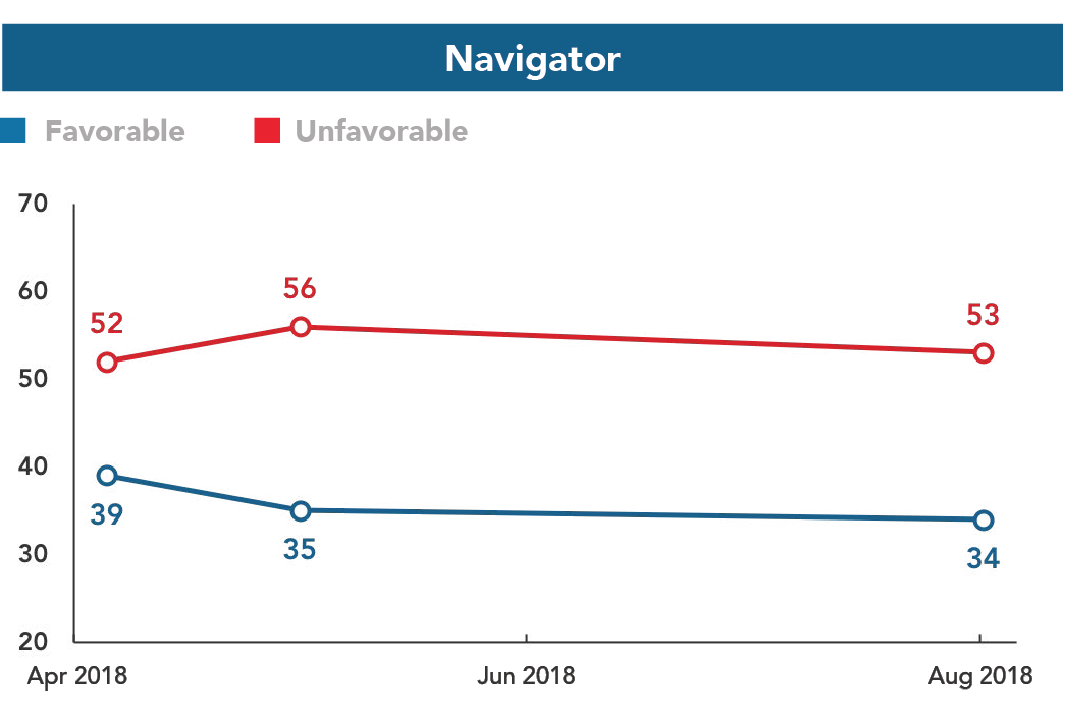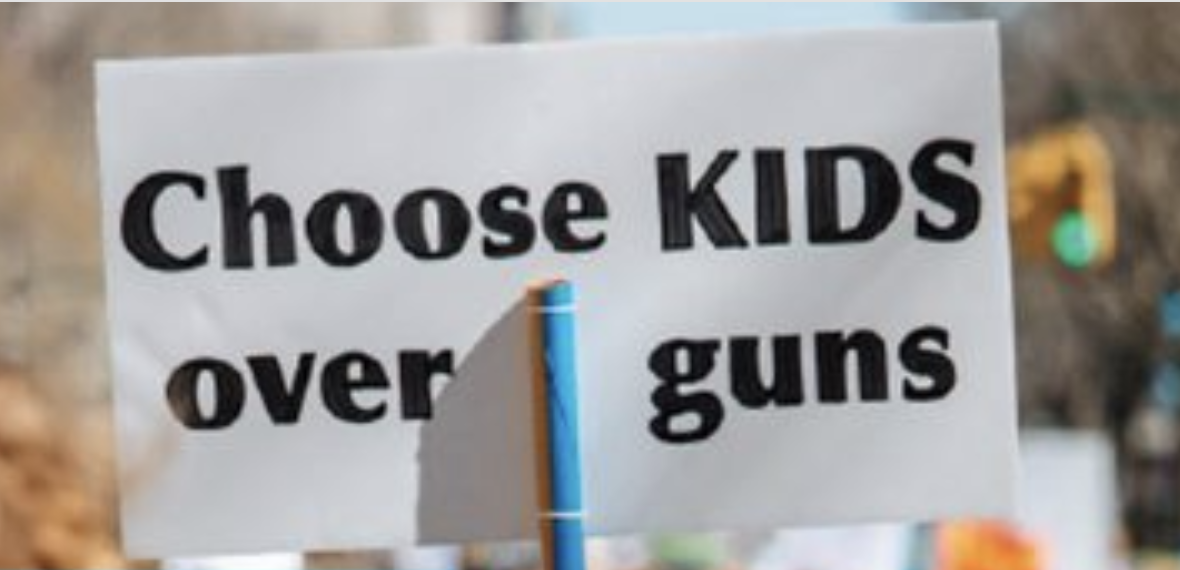One constant in the decades-long debate over gun laws in the United States has been the durable popularity of the NRA. The group had remained generally popular for the better part of three decades — quickly rebounding after brief dips following tragedies like those at Columbine and Newtown.
Yet Navigator polling from the past several months — and other public polling — reveal a new normal emerging: the NRA’s image has been substantially tarnished in the aftermath of Parkland. The group is now underwater, and shows no signs of bouncing back.
Has the Last Domino Fallen?
As long as the authors of this brief have been studying and writing about gun laws, we’ve seen a dynamic where most individual polices to strengthen guns laws — such as (but not limited to) universal background checks — are extraordinary popular. Yet, three major public opinion barriers have stood in the way of these overwhelming popular gun reforms: dwindling support for ‘stricter gun laws,’ intensity of gun rights advocates, and the popularity of the NRA. The first two of these road blocks have already begun to soften in recent years.
Recent Support for “Stricter Gun Laws” Increases Further.
For a quarter century, we’ve seen overall support for “stricter” gun laws declining. In the early 1990s, Gallup showed over three-fourths supported stricter laws, compared to fewer than a fifth preferring laws “kept as they are now.” But by 2011 more supported the status quo over stricter laws. In the wake of the 2012 Newtown massacre, however, there was a meaningful uptick in support “more strict,” which has grown from 58% in 2012 to 67% in the most recent survey. Similarly, in CNN’s most recent gun poll from February, a record-number (70%) say they support “stricter gun control” — a high not seen in their poll since 1993 — but part of a continued rise since 2016.
Intensity Has Grown On Among Advocates For Stronger Gun Laws.
For years, the conventional political wisdom suggested stronger gun laws may be widely popular, but the opponents of such laws care more intensely, and so are more motivated to vote and engage on the issue. In recent years, however, there are many indicators that this intensity gap has closed. In a CNN poll this month, Democrats were more likely than Republicans to say guns will be important to them in their midterm vote. Quinnipiac showed in May that Democrats would be rewarded more electorally than Republicans on the issue of guns. And Pew also now shows Democrats with a 6-point advantage on “gun policy,” up from a 5-point deficit just a few years ago.
This pattern continues to solidify. Our current Navigator poll shows Democrats with a clear advantage over Republicans on “addressing gun violence” (44% trust Democrats more, 28% trust Republicans more); with this advantage widening since June. In two separate experiments, Giffords PAC and Center for American Progress/Guns Down surveys further found an electoral advantage for a candidate supporting stronger gun laws.
Support For The NRA Falls and Can’t Get Up.
Despite the movement on overall support for gun laws and the closing of the intensity gap, the one constant was the popularity of the NRA. Even as recently as 2017, public polling showed more were favorable of the NRA than not. But, in the wake of the February 2018 shooting at Parkland high school, opinions on the NRA suddenly and dramatically shifted negatively — and it’s staying underwater. In three separate Navigator polls since April, the NRA has been more unpopular than popular. Parkland, and guns more broadly, have receded from daily news coverage, yet the NRA remains unpopular.
NRA favorability from Navigator polling

NRA favorability in other public polling

This new unpopularity transcends outlets. An analysis of public polling across three research organizations that routinely ask about the group — albeit using different methodologies, scales, and question wording — all show the recent downward trend of the NRA’s image compared to the previous decade.
The group’s leadership change seems unlikely to help. The CAP/Guns Down poll (conducted June 12-16, 2018 by GBA Strategies) showed both NRA CEO Wayne LaPierre and new NRA president Oliver North to be net unfavorable. Recent stories about corporate boycotts of the NRA, as well as the exposure of group’s ties to Russia, while smaller news stories, may have also had some impact.
It seems the group’s political strength and clarity of message may ultimately be its weakness. In the CAP/Guns Down poll, more see the NRA as an organization for lobbyists than hobbyists. Half (53%) describe the organization as “mainly a political organization that fights to weaken gun laws and help the gun industry sell more guns” as opposed to “mainly an organization for gun hobbyists and for those interested in firearms education.” This is also a shift from a Guns Down 2017 survey, when the numbers were reversed, and a majority (53%) found the organization mainly focused on safety and education training.
Similarly, over half (57%) say it is not appropriate “for major American corporations to support or provide benefits to the NRA,” again an increase from the Guns Down 2017 survey, where Americans were evenly divided (49% appropriate, 51% inappropriate). The national surge in consumer-led activism is more prevalent on the left, and around the issue of guns in particular.
These Opinion Shifts Are Either Driving — Or Are Driven By — Changing Behavior From Our Leaders.
Which changed first — voters’ views on guns, or candidates’ willingness to talk about them? Regardless of the causality, both seem to be on the move. In the year post-Newtown, more states actually loosened gun laws. But in the past few months, states have passed dozens of stronger gun laws. And a recent analysis of campaign advertising by USA Today shows Democrats particularly likely to mention stronger gun laws — a clear departure from previous years. As our gun violence epidemic continues unabated, our leaders finally seem interested in listening to their constituents — and not just the NRA.
